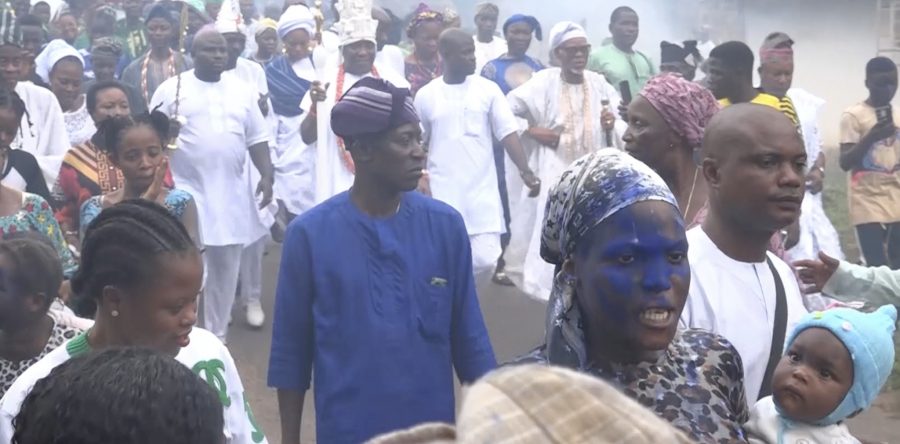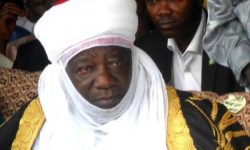The Yoruba people, one of the largest ethnic groups in Nigeria, are concentrated in the southwestern part of the country. Their cities are known for rich cultural heritage, historical significance, and economic importance. Below are ten of the most popular Yoruba cities:
1. Ibadan (Oyo State)
Population: Over 3 million
Ibadan is the capital of Oyo State and is the largest city in West Africa by land area. It was a major center during the colonial era and remains a key hub for education, culture, and commerce.
Home to the prestigious University of Ibadan (the oldest university in Nigeria), Ibadan also boasts landmarks like the Cocoa House skyscraper and the Agodi Gardens.
2. Lagos (Lagos State)
Population: Over 20 million
Though a melting pot of various Nigerian ethnicities, Lagos (Eko in Yoruba) is a Yoruba city and the economic capital of Nigeria.
It is the largest city in Africa by population and the center of finance, entertainment, and business in Nigeria. It also has historical Yoruba roots, with traditional centers like the Isale Eko, Iga Iduganran, Oju Olobun, Marina, Ita Faaji Campos and Lafiaji area.
It is also the home of the beautiful Christ Church Cathedral, Kings College, St. Gregory's College, National Museum and many other beautiful edifices and local attractions.
3. Ile-Ife (Osun State)
Population: Over 500,000
Considered the spiritual homeland of the Yoruba people, Ile-Ife is historically significant as the place where the Yoruba civilization began. Home of the palace of the Ooni of Ife, one of the most important traditional rulers in Yorubaland.
Ife is also famous for its ancient bronze and terracotta artworks.
4. Abeokuta (Ogun State)
Population: Over 600,000
Abeokuta, the capital of Ogun State, is known for its historical role in resisting colonial conquest. The city is famous for Olumo Rock, a significant landmark, and is also the birthplace of notable Nigerian figures like former president Olusegun Obasanjo, Nobel laureate Wole Soyinka, the Late Mrs. Funmilayo Kuti, Afrobeat Maestro Fela Anikulapo, Chief Commander Ebenezer Obey and many others .
5. Osogbo (Osun State)
Population: Over 500,000
Osogbo is the capital of Osun State and is renowned for the annual Osun-Osogbo Festival, a UNESCO-recognized cultural event that attracts thousands of visitors. The Osun Sacred Grove, a forest and sanctuary for the Yoruba goddess of fertility, is another highlight of the city.
It is also the home of the Ataoja of Osogbo, a paramount Yoruba ruler.
6. Akure (Ondo State)
Population: Over 500,000
Akure is the capital of Ondo State and serves as an important administrative and commercial center. The city is known for its rich history and is home to the Deji of Akure, a traditional ruler of great significance in Yorubaland.
7. Oyo (Oyo State)
Population: Over 600,000
Oyo is historically important as the site of the ancient Oyo Empire, one of the most powerful kingdoms in West Africa during its peak. The Alaafin of Oyo remains one of the most respected traditional rulers in the Yoruba region.
8. Ijebu-Ode (Ogun State)
Population: Over 400,000
Ijebu-Ode was historically part of the Ijebu Kingdom, known for its wealth and trade with Europeans during the pre-colonial era. It remains a cultural and economic center, especially famous for the Ojude Oba Festival, which celebrates the royal house and traditions of the Ijebu people.
9. Iwo (Osun State)
Population: Over 200,000
Iwo is a historic city in Osun State and home to the Oluwo of Iwo, a prominent traditional ruler. The city has a rich cultural heritage and is known for agriculture and trade. It played a significant role during the pre-colonial era as a trading center.
10. Ado-Ekiti (Ekiti State)
Population: Over 400,000
Ado-Ekiti is the capital of Ekiti State and is known for its peaceful atmosphere. It also has a rich history of traditional leadership, with the Ewi of Ado-Ekiti being one of the important rulers in Yoruba culture.
These cities are key to understanding the history, culture, and modern development of the Yoruba people and their contribution to Nigeria as a whole. They are centers of tradition, governance, commerce, and education.









